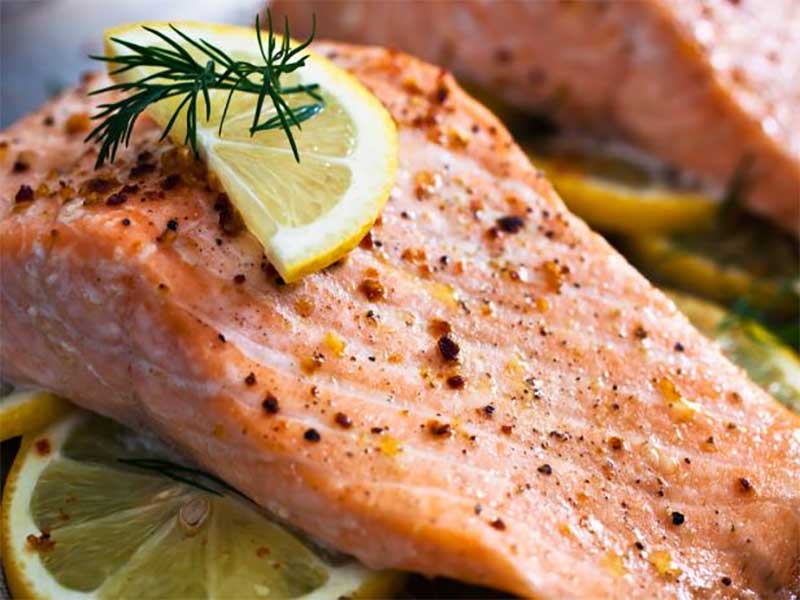Did you know that what you eat can benefit how your lungs function, and how well you can breathe? Give these foods a try for improved respiratory health.
 |
| CentralITAlliance |
Pears
Eating more fresh fruit like pears may decrease the production of phlegm, found a Scottish study in the European Respiratory Journal. In the study, adults regularly eating fresh fruit had a 30 to 40 percent reduced prevalence of phlegm for three or more months per year and in the morning in winter.
“Pears are portable and can easily be found nationwide,” says Elizabeth Shaw, MS, RDN, CLT, nutrition communications consultant at Shaw’s Simple Swaps. “Not only are they bursting with fiber, which helps keep you fuller for longer, they’ve also got vitamin C, an important antioxidant that can boost your immunity.” Pair pears with almond butter, or add thin slices to a grilled cheese sandwich.
Matcha
 |
|
Kate Mathis, 2016, Television Food Network, G.P. All Rights Reserved Food Nework Kitchen’s Matcha Lemonade. |
Sweet Potatoes
Black Cumin
This spice may fight inflammation and help lower resistance in the respiratory airway — potentially helping get more air to the lungs. People with partially controlled asthma who supplemented with black cumin saw improvements in both inflammation and pulmonary function, per a small study in Annals of Saudi Medicine.
Fish
Eating fish like salmon and sardines may help your respiratory health: Kids who ate less fish were more likely to report poor respiratory health, especially more coughing and wheezing, in a European study. It’s possible that the omega-3s in fish may provide protective respiratory benefits. Grill salmon with veggies, or add sardines to a Greek salad.
Important Notice: This article was originally published at www.foodnetwork.com by Amy Gorin, M.S., R.D.N. where all credits are due.
Disclaimer
The watching, interacting, and participation of any kind with anything on this page does not constitute or initiate a doctor-patient relationship with Dr. Farrah®. None of the statements here have been evaluated by the Food and Drug Administration (FDA). The products of Dr. Farrah® are not intended to diagnose, treat, cure, or prevent any disease. The information being provided should only be considered for education and entertainment purposes only. If you feel that anything you see or hear may be of value to you on this page or on any other medium of any kind associated with, showing, or quoting anything relating to Dr. Farrah® in any way at any time, you are encouraged to and agree to consult with a licensed healthcare professional in your area to discuss it. If you feel that you’re having a healthcare emergency, seek medical attention immediately. The views expressed here are simply either the views and opinions of Dr. Farrah® or others appearing and are protected under the first amendment.
Dr. Farrah® is a highly experienced Licensed Medical Doctor certified in evidence-based clinical nutrition, not some enthusiast, formulator, or medium promoting the wild and unrestrained use of nutrition products for health issues without clinical experience and scientific evidence of therapeutic benefit. Dr. Farrah® has personally and keenly studied everything she recommends, and more importantly, she’s closely observed the reactions and results in a clinical setting countless times over the course of her career involving the treatment of over 150,000 patients.
Dr. Farrah® promotes evidence-based natural approaches to health, which means integrating her individual scientific and clinical expertise with the best available external clinical evidence from systematic research. By individual clinical expertise, I refer to the proficiency and judgment that individual clinicians acquire through clinical experience and clinical practice.
Dr. Farrah® does not make any representation or warranties with respect to the accuracy, applicability, fitness, or completeness of any multimedia content provided. Dr. Farrah® does not warrant the performance, effectiveness, or applicability of any sites listed, linked, or referenced to, in, or by any multimedia content.
To be clear, the multimedia content is not intended to be a substitute for professional medical advice, diagnosis, or treatment. Always seek the advice of your physician or other qualified health providers with any questions you may have regarding a medical condition. Never disregard professional medical advice or delay in seeking it because of something you have read or seen in any website, video, image, or media of any kind.
Dr. Farrah® hereby disclaims any and all liability to any party for any direct, indirect, implied, punitive, special, incidental, or other consequential damages arising directly or indirectly from any use of the content, which is provided as is, and without warranties.










